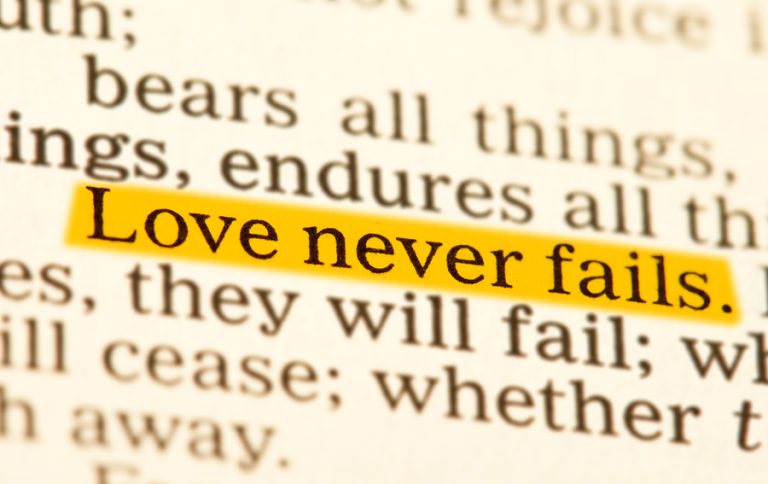
Some say love is an emotion. It is. It is also said to be a social construct, a utility, and a necessary function to continue the existence of humanity. It is. It is also said to be a power. It is this, too. I believe it is simultaneously these and more. Much more.
In the 2014 movie Interstellar, Dr. Brand says of love, “Maybe it’s some evidence, some artifact of a higher dimension that we can’t consciously perceive. Love is the one thing we’re capable of perceiving that transcends dimensions of time and space. Maybe we should trust that, even if we can’t understand it.”
This is getting closer. We instinctively know that love exists, though we are unable to adequately describe what it is. This, in and of itself, tells me that it is something greater than us and that it does not originate with or in us. But what is it?
I believe love is, in fact, an artifact of a higher dimension. The highest, actually. More than even this, it is an attribute (characteristic) of God. And even more than this, Scripture plainly says that God IS love. John says, “And so we know and rely on the love God has for us. God is love. Whoever lives in love lives in God, and God in him.” (1 John 4:16 NIV)
How literal is this? Very. “Esti,” the Greek word translated as ‘is’, implies that God “consists” of love. But then, we still do not know exactly what love is. Why is this? Why is it so difficult to understand something so universal to us? This is what I think:
Given that God consists of love–and we cannot comprehend all that He is–we are unable to fully comprehend love or what it is. I do not believe that we will ever, in this life, fully understand what love is because we cannot fully comprehend God. It is enough to know that it is, that it is real and that we can love truly and genuinely. But there is still more.
Love, being an attribute of God and at the same time the consistency of God, it is remarkable that God–in all that He is–chooses to be one with us (John 17:21) and love us unconditionally. When we allow His love to be expressed in and through us, we allow the very character and nature of God to be expressed in and through us. (That will boggle your mind if you ever get a true glimpse of it.)
Does any kind of love qualify? No. Love of human origin is selfish in nature. This is unavoidable, a result of the sin into which we were born. And what some people call love is nothing more than lust or the social construct I mentioned above.
Make no mistake: We are capable of genuine love only because we are created in God’s image, meaning the “God kind” of love, the selfless, unconditional love with which God loves us, and that surpasses our understanding. Though we are incapable of expressing it fully, we can do so to a limited degree.
It should be our goal, intention, and even our life’s purpose to do this, to express God’s kind of love while we are in these human bodies. Why so? (I am asking ‘why’ a lot today.) Read today’s Scripture passage. Paul speaks of this kind of love. He says that nothing in this life has any real value in God’s reckoning except love. Read that again. NOTHING has value except what is done from a motive of genuine, God-kind love.
Love is the greatest thing to which we can aspire. It does not always bring recognition, acknowledgment, or profit in this life. In fact, it seldom does. Human nature drives us to ignore genuine love and go for those things. That is a cheap compromise.
If I speak in the tongues of men and of angels, but have not love, I am only a resounding gong or a clanging cymbal. If I have the gift of prophecy and can fathom all mysteries and all knowledge, and if I have a faith that can move mountains, but have not love, I am nothing. If I give all I possess to the poor and surrender my body to the flames, but have not love, I gain nothing. (1 Cor 13:1-3 NIV)
No one may ever know you acted in love in any given situation. But God knows. In 1 Cor. 13, Paul teaches that love keeps no record of wrongs. True. But God keeps a record of rights (things we do right). Jesus spoke of our reward from God often. For what will we be rewarded? Love. That’s all. No love? No reward.
So, why do you do what you do? If it is for any motive other than love, it is of no value beyond this life. I hope this will prompt you to do an inventory of your goals, motives, and purposes. If what you do is not done in love, it is worthless. On the other hand, whatever you do in, by, through, and because of love will never cease to exist–in this world or the next.
From ministry friend Randall Vaughn.
(c) 2023 Randall Vaughn • All Rights Reserved • http://www.e-min.org





